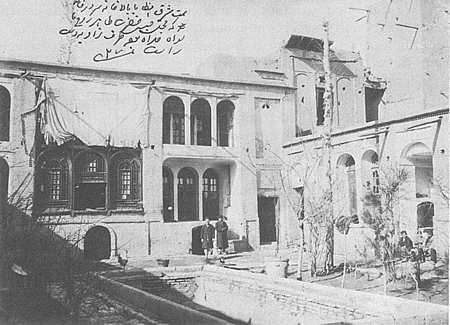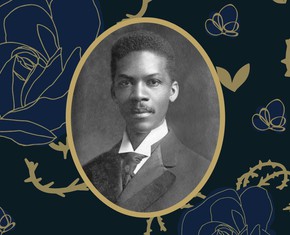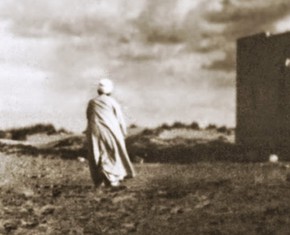The views expressed in our content reflect individual perspectives and do not represent the authoritative views of the Baha'i Faith.
What if you realized your heart’s desire? What if the object of your devotion bettered you and your world but your community despised it? What would you sacrifice to protect it? Would you have the courage to promote it if that put you at odds with your friends, family, and countrymen, or if it endangered your life?
Tahirih, also known as Qurratu’l-Ayn, faced this dilemma when she answered the call of the Bab, who first appeared to her in a dream 170 years ago. She dreamt of the Bab, the new messenger of God who heralded the advent of the Baha’i Faith, and immediately became a devoted follower:
O Qurratu’l-Ayn! We have, verily, dilated Thine heart in this Revelation, which stands truly unique from all created things, and have exalted Thy name through the manifestation of the Bab, so that men may become aware of our transcendent power…- The Bab, Selections from the Writings of the Bab, pp. 48-49.
Tahirih responded in poem, prose and courageous actions expressing her recognition and whole-hearted devotion:
The effulgence of thy face flashed forth and the rays of thy visage arose on high; then speak the word, “Am I not your Lord? “And “Thou art, Thou art!” we will all reply. – translated by E.G. Browne, A Gathering of the Poems of Tahirih.
Love planted its flag at my ruined house, and greeted me at the gate. It poured the wine of God in my cup. Now I am an outsider to myself and everyone else. God requires of me my highest effort. – Amin Banani, Jascha Kessler, Tahirih: A Portrait in Poetry: Selected Poems, p. 144.
Tahirih’s recognition of the Bab was quite a feat for a woman raised in the conservative home of one of the most powerful clerics in her country. Tahirih was no ordinary woman. Unlike the overwhelming majority of her contemporaries she was an educated and well-regarded teacher and leader. It was in this capacity that she constantly strove to find ways to improve the life of her people. Her efforts led her to discover in the teachings of the Bab the practical power to remake her world:
Truly the morn of Guidance commands the breeze to begin. All the world has been illuminated; every horizon; every people… The world will be free from superstition and vain imaginings… Tyranny is destined for the arm of justice…- The Morn of Guidance, translated by Susan Stiles Maneck and Farzad Nakhai, susangammage.com/a-gathering-of-the-poems-of-tahirih
Nineteenth century Persia desperately needed remaking. The historian Lord Curzon describes life in Iran at the time of Tahirih:
Under… an administration in which every actor is… both the briber and the bribed; and a judicial procedure, without either a law or a law court – it will readily be understood that confidence in the Government is not likely to exist, that there is no personal sense of duty or pride of honor no mutual trust or co-operation (except in the service of ill-doing)… – The Dawn-breakers: Nabil’s Narrative, page XXVI.
In a society that regarded woman as property and devoid of a soul; she publicly cast off her veil saying, “Verily, amid gardens and rivers shall the pious dwell… in the presence of the potent King.” – The Dawn breakers: Nabil’s Narrative, page 213. Tahirih broke through that ignorance by removing her veil–both literally and symbolically—which caused her male contemporaries to question her virtue and attack the Bab and his teachings.
Plato’s analogy of the cave may help us appreciate Tahirih’s life in a community enslaved by ignorance and prejudice. In her culture illiterate followers relied on their clergy, whose inaccurate explanations of reality shackled progress and cut off development—especially for women. In his analogy Plato explains that it takes great effort for the prisoner to break the chains of ignorance and turn around to see the true nature of things.
Tahirih’s action and utterance heralded the advent of a Revelation powerful enough to realize the oneness of humanity and the equality of men and woman. “The clarion call of the new Order had been sounded. The obsolete conventions which had fettered the consciences of men were boldly challenged and fearlessly swept away.” – The Dawn-breakers: Nabil’s Narrative, page 215.
Tahirih had found an enlightened vision of reality and did what any other compassionate soul would do–she rose up to help their community see the truth.
As a result, an entire generation of souls embraced the Bab’s new teachings, threw off the shackles of ignorance and walked out of Plato’s symbolic cave. Baha’is today know those early believers as “the Dawn Breakers,” whose extraordinary vision and heroic sacrifices paved the way for the global growth of the Baha’i Faith.
Tahirih courageously strove to enlighten all who would hear her, knowing full well the process of setting her peers free would cause those in power to rise up and destroy her. As Plato concludes in his allegory, “And if they can get hold of this person who takes it in hand to free them from their chains and to lead them up, and if they could kill him, will they not actually kill him? They certainly will.”
Tahirih served a Revelation that would free our world from the tyranny of ignorance forever. This was an outcome the authorities would not allow. They fell upon her, hoping to extinguish through her strangulation the miraculous processes of enlightenment and emancipation released by the Bab’s Revelation.
The appearance of such a woman as Qurraty’l-Ayn is in any country and any age is a rare phenomenon, but in a country such as Persia it is a prodigy – nay almost a miracle…. Had the Babi religion no other claim to greatness, this were sufficient – that it produced a heroine like Qurratu’l-Ayn. – E.G. Browne, quoted in A Traveller’s Narrative, p. 309.
Tahirih’s last words, “You can kill me as soon as you like but you cannot stop the emancipation of women.” reveal the extent of her faith in the Cause for which she was martyred.
That we have come so far today helps vindicate her faith in the efficacy of the Revelation for which she sacrificed her life. “Is not the object of every Revelation to effect a transformation in the whole character of mankind, a transformation that shall manifest itself both outwardly and inwardly, that shall affect both its inner life and external conditions?” Baha’u’llah, The Kitáb-i-Íqán p. 241.
You May Also Like
Comments


















www.tahirih.org/